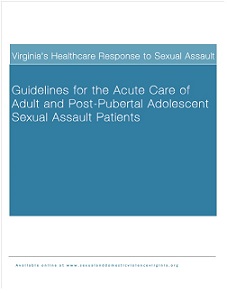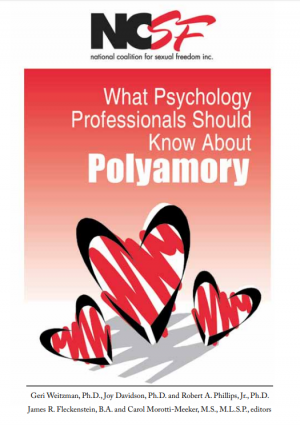Resources Library: Healthcare Professionals
Start a Search:
Violence at Home: The FACT Report 2014
When the first Violence at Home: The FACT Report was published in 2010, information about the extent of family violence in Virginia was scattered across state agencies, often divided by the age of the
victim or the nature of the crime. The FACT Report pulled this data into one document in an easy-to-understand format. The 2014 FACT Report is now taking this mission, to provide a comprehensive view of family violence in Virginia, a step further through the creation of a dynamic, online web portal. The portal includes 18 indicators of family violence, spanning 8 years of data for many of these measures, and presents them in an interactive report format. The information contained in this publication will highlight trends and recommendations. The full data tables that were previously located in the FACT Report and Report Appendix are now found online at: http://www.fact.virginia.gov/family-violence-indicator-locality-data-tool. To ease in the transition away from the print publication to an online data portal, this year’s FACT Report will also include report examples. Full step-by-step instructions for creating these reports can be found online at: http://www.fact.virginia.gov/step-by-step.
Virginia Center on Aging: Abuse in Later Life Program
Virginia Center on Aging Abuse in Later Life Program provides professional development to those working in the fields of law enforcement, aging services, adult protective services, domestic and sexual violence, health care and more. By working collaboratively, we can put the pieces together to see and address the whole story--the whole person--the whole system and to improve the lives of victims of abuse in later life.
Click here for more information on this resource.
Virginia LGBTQ Community Resource and Referral Guide
This guide was created to serve as a resource for people working with LGBTQ Virginians who might not be aware of the extent of community based resources in their areas. Includes medical, legal, community, and religious/faith resources by region (central, eastern, southern/southwest, norther, northwest, and state). Published by the Virginia Anti-Violence Project.
Virginia’s Healthcare Response to Sexual Assault:

Guidelines for the Acute Care of Adult and Post-Pubertal Adolescent Sexual Assault Patients
The document incorporates recommendations from professionals across Virginia, as well as information from current guidelines from relevant state and national resources on the management of sexual assault patients and the collection of forensic evidence. The guidelines provide a framework for the critical role of the healthcare sector in meeting the needs of sexual assault patients and the criminal justice system. They are organized around four fundamental criteria and were developed to address the healthcare response at the community, facility, and individual levels.
While these guidelines were developed specifically for healthcare professionals and facilities, the healthcare sector is just one component of a comprehensive response to sexual violence. These guidelines will also be a valuable component of statewide efforts to establish coordinated, collaborative, and compassionate responses to sexual violence in every community in Virginia. Published by Virginia Sexual and Domestic Violence Action Alliance and Virginia Chapter of the International Association of Forensic Nurses December 2009. 127 pages.
On July 1, 2013, Virginia enacted legislation that provides a procedure health care providers may use to evaluate incapacitated patients who may have been sexually assaulted (see § 54.1-2970.1 below). The legislation is intended to be used when a sexual assault examination and physical evidence recovery is prudent, but the adult patient is unable to consent and timeliness of evidence collection is crucial prior to destruction by medical interventions or bodily functions. The law outlines specific procedures and criteria that must be met in order to allow the examination and evidence recovery without the patient’s consent. In November, an addendum to the Healthcare Guidelines was released to provide guidance to healthcare professionals on the use of this new process. It is expected that the new consent process will be infrequently used, as consent for the sexual assault examination and physical evidence recovery may be obtained from next of kin, guardians, or from the patient after the patient regains the capacity to consent following temporary incapacity.
What Psychology Professional Should Know About Polyamory

The booklet is the result of collaboration among a small but dedicated group of activists and professionals – some polyamorous, some not – who believe that polyamory represents a serious relationship option deserving of respect and understanding among helping professionals and the broader public alike. The independent work of Dr. Geri Weitzman, Dr. Robert Phillips and [Dr. Joy Davidson], woven here into a single integrated text, provides a great introduction for the helping professional to begin educating her/himself on this form of relationship configuration.

